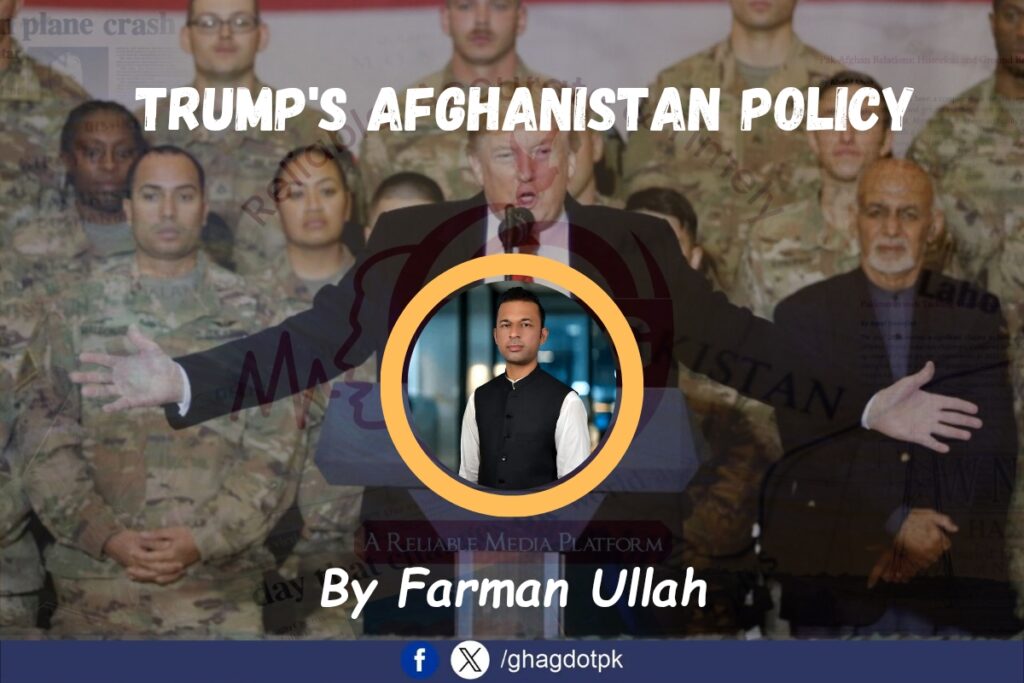By Farman Ullah
President Trump’s recent shift in Afghanistan policy has sparked intense debate both domestically and internationally. His administration is focused on three main areas: reclaiming military equipment, limiting immigration, and redefining America’s role in the region.
Reclaiming Military Assets
Trump has emphasized the need to retrieve military equipment left behind in Afghanistan, criticizing previous administrations for leaving billions of dollars’ worth of military hardware in the hands of the Taliban. The Pentagon is now working on strategies to reclaim or neutralize critical assets, including helicopters, drones, and armored vehicles. This effort aims to minimize potential threats from Afghanistan while addressing domestic concerns over defense spending.
Limiting Afghan Immigration and Refugee Admissions
Another significant policy change is the suspension of Afghan refugee admissions. On January 20, 2025, Trump signed an executive order halting the entry of Afghan nationals, including those who worked with US forces during the war. This policy has left thousands of vulnerable individuals stranded, with advocacy groups raising concerns about their safety under Taliban rule. Critics argue that this move betrays America’s moral obligations, particularly towards interpreters and allies who risked their lives during the conflict.
A New Approach to Military Presence
Trump has consistently criticized the US’s prolonged military engagement in Afghanistan. His administration’s “America First” approach involves reducing troop numbers and avoiding costly foreign conflicts. Trump views Afghanistan as a lesson in the futility of nation-building, favoring targeted counterterrorism efforts over traditional military occupations. However, a reduced US presence could create a power vacuum, emboldening extremist groups and undermining regional stability.
Global Reactions and Criticism
Trump’s policies have received mixed reactions globally. Some observers commend his commitment to ending “forever wars,” while others fear his rhetoric and actions could exacerbate Afghanistan’s humanitarian crisis. Pakistan, a key regional player, has expressed concerns about potential instability along its borders. Trump’s push to reclaim military equipment also poses logistical and diplomatic challenges, particularly in engaging with the Taliban-controlled Afghan government.
Humanitarian and Strategic Concerns
Organizations like Human Rights Watch and the United Nations have criticized the suspension of refugee admissions, emphasizing the urgent need to protect those at risk of Taliban reprisals. Trump’s emphasis on securing US interests resonates with his core voter base, but his policies have sparked significant humanitarian concerns and geopolitical uncertainty, leaving the future of US-Afghan relations in flux.
In the context of Trump’s Afghanistan policy, experts have pointed out that the Taliban’s territorial control has expanded significantly, with almost half of Afghanistan’s districts under their control or contestation. The Taliban’s ability to launch devastating attacks has also raised concerns about the group’s intentions and capabilities.
Furthermore, Trump’s approach to Afghanistan has been shaped by his administration’s broader South Asia strategy, which emphasizes the need for India to play a more active role in regional security. However, this approach has also raised concerns about the potential for increased tensions between India and Pakistan, both of which are nuclear-armed powers.
Overall, Trump’s recent shift in Afghanistan policy has significant implications for the region and beyond. While his administration’s approach may resonate with some Americans, it has also sparked intense debate and criticism from various stakeholders. As the situation in Afghanistan continues to evolve, it remains to be seen how Trump’s policies will shape the future of US-Afghan relations and regional stability.






